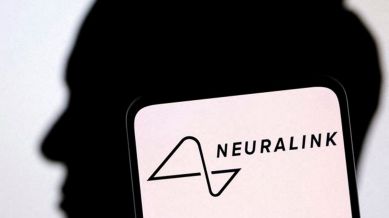Elon Musk’s Neuralink shares video of patient with implant playing chess
Elon Musk-led Neuralink showed a video where a patient with an implant seems to be using it to play chess on a computer.

Elon Musk-led startup Neuralink on Wednesday streamed a video on the platform X, formerly Twitter, showing a patient seemingly using a brain implant from the company to move a mouse and play chess on a computer.
Neuralink is working on developing a brain-computer interface that is designed to help patients with paralysis or other conditions control computers and other electronic devices using neural signals. 29-year-old Noland Arbaugh is the first human patient to get implanted with the Neuralink device that reads signals from the brain, according to CNBC.
Musk, in the meanwhile, took to X to announce that Neuralink’s first product will be called “Telepathy.”
Arbaugh in the video did mention that the technology is “not perfect” and that there is still a lot of work that needs to be done. But he also added that the technology has helped change his life. According to him, the surgery was “super-easy” and that he was released from the hospital after just one day.
The US Food and Drug Administration gave Neuralink clearance to conduct its first trial to test its implant on humans last year. Musk in January this year announced that the first implant was successful and that the patient was able to “move a cursor” using the interface.
The study used a robot to surgically place a brain-computer interface in a region of the brain that controls the intention to move.
While Arbaugh’s experience and in some ways, success with the implant is encouraging, the journey till here was not a walk in the park for the company. Monkeys that were given the device as implants during animal trials faced a series of difficulties, including complications like bloody diarrhoea, partial paralysis, and cerebral edema, according to a Wired report in 2023.
At the time, Musk had made remarks that the monkeys that died after receiving the implants were “close to death already,” but this was refuted by the report that cited employees who referred to the billionaire’s claims as “ridiculous” or “straight fabrication.”